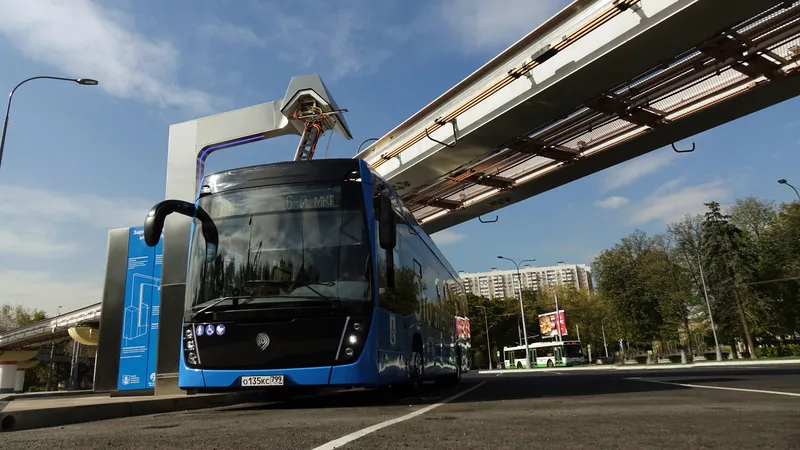Last year, these towns and two regions of Zealand made a commitment to achieve C02-neutral bus transport by 2030 as part of Movia’s Mobility Plan 2016. In addition, the municipality of Copenhagen aims to become a CO2-neutral city in 2025.
Through the agreement, Siemens will provide high-power charging stations which are said to charge bus batteries within four to six minutes and feature power levels of 150kW, 300kW or 450kW. The deal includes the installation, commissioning, civil engineering works and the company’s remote monitoring system eBus Cloud as well as a six-year service contract.
Selected bus terminals will be equipped with charging stations that supply power to the buses via a top-down pantograph inversely mounted to a mast. The battery-management system controls the charging process while the control pilot circuit offers manual control as an option to help ensure safety standards.
Charging is initiated when the bus arrives on the mast and a Wi-Fi communication is established. The vehicle stops underneath the mast and the charging process begins when the driver activates the hand brake. The bus is equipped with contact rails on the of above the front axis. Charging is stopped when the driver releases the hand brake.
Additionally, Siemens has developed onboard interfaces with the intention of providing a fully interoperable system that can charge buses from different manufacturers at the same station.
Siemens to deliver charging solutions to electric buses to Denmark
Siemens has entered a three-year agreement with Denmark’s public transport authority Movia to deliver charging stations with a top-down pantograph for electric buses to help slash particle and noise pollution and CO2 emissions. The transaction could potentially benefit 45 municipalities including the city of Copenhagen and Region Zealand.
Last year, these towns and two regions of Zealand made a commitment to achieve C02-neutral bus transport by 2030 as part of Movia’s Mobility Plan 2016. In addition, t
April 11, 2018
Read time: 2 mins








